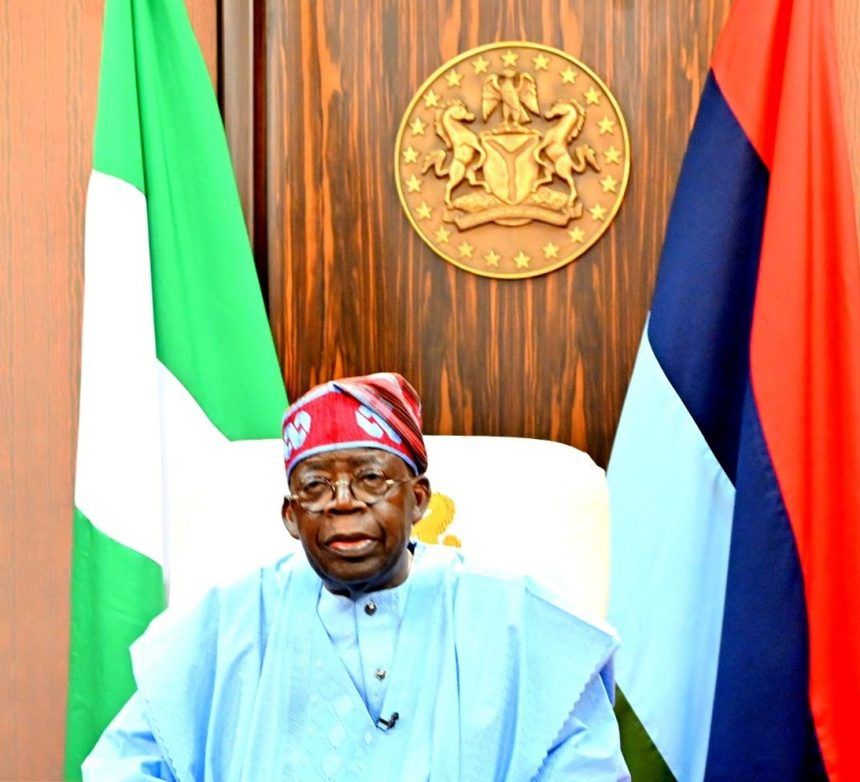
President Bola Ahmed Tinubu has assured Nigerians that the country’s toughest days are behind it, declaring that his administration’s bold reforms are beginning to yield tangible results.
In a national broadcast on Wednesday to mark Nigeria’s 65th Independence Day anniversary, the President said his government had deliberately chosen “the path of tomorrow over the comfort of today” since taking office in May 2023, and that the sacrifices made by citizens were now paving the way for national renewal.
“I am pleased to report that we have finally turned the corner. The worst is over,” Tinubu declared. “Yesterday’s pains are giving way to relief. I salute your endurance, support, and understanding. I will continue to justify the confidence you have placed in me to steer this ship of state to safe harbour.”
Resilience Through History
The President hailed Nigerians for their resilience, recalling how the nation had endured civil war, military rule, and political upheavals while continuing the quest to build a “more perfect union.” He described the 65th anniversary as a moment of reflection on the sacrifices of the nation’s founding fathers and the milestones achieved since independence in 1960.
Achievements in Education and Healthcare
Tinubu highlighted significant progress in social sectors, noting that Nigeria has grown from only two tertiary institutions at independence to 274 universities, 183 polytechnics, and 236 colleges of education by 2024.
He also underscored ongoing investments in healthcare and infrastructure as part of his government’s vision for inclusive growth.
Economic Reforms Bearing Fruit
Defending tough policy choices such as fuel subsidy removal and foreign exchange unification, Tinubu argued that these decisions dismantled decades of distortions and rent-seeking that enriched only a few.
“In resetting our country for sustainable growth, we ended the corrupt fuel subsidies and multiple foreign exchange rates that created massive incentives for a rentier economy,” he said. “We have redirected resources toward education, healthcare, security, agriculture, and critical infrastructure.”
The President reeled out key milestones achieved within his administration, including:
GDP growth of 4.23% in Q2 2025 — the fastest in four years.
Inflation reduced to 20.12% — the lowest in three years.
Foreign reserves rising to $42.03bn.
Non-oil revenue up sharply, debt service costs down.
Tax-to-GDP ratio increased to 13.5%.
Five consecutive quarters of trade surplus, with manufactured exports up 173% and non-oil exports accounting for 48% of total trade.
Oil production recovered to 1.68m bpd, while local refining restarted for the first time in four decades.
Improved credit ratings, a stable naira, and renewed investor confidence, evidenced by a booming stock market and the Central Bank’s first interest rate cut in five years.
Security Gains
Tinubu reassured Nigerians that the armed forces and security agencies are “winning the war against terrorism, banditry, and violent crimes,” noting that peace has returned to hundreds of communities in the North-East and North-West, with thousands of displaced citizens returning home.
“We must celebrate their gallantry and salute their courage on behalf of a grateful nation,” he said.
Focus on Food Security and Infrastructure
The President pledged to prioritise agriculture to tackle rising food prices, while accelerating investments in roads, schools, hospitals, and transport infrastructure.
He cited ongoing mega projects such as the Lagos-Calabar Coastal Highway and the Eastern Rail Project as evidence of government’s determination to modernize Nigeria’s infrastructure.
Youth Empowerment and Social Investment
Addressing young Nigerians, Tinubu described them as the country’s “greatest assets,” pointing to initiatives like the Nigeria Education Loan Fund, which has already supported over 500,000 students, and credit schemes such as Credicorp and YouthCred, which provide access to housing and digital devices.
He also reaffirmed commitment to the $600m iDICE programme, backed by global partners, to support Nigeria’s fast-growing digital and creative sectors. Under his administration’s social investment programmes, he noted, ₦330bn has been disbursed to eight million households.
A Call for Unity and Productivity
Tinubu acknowledged the temporary hardships caused by reforms but urged Nigerians to remain steadfast.
“The alternative of allowing our country to descend into economic chaos or bankruptcy was never an option,” he said. “We must build the roads we need, the schools our children deserve, and the hospitals that will care for our people. We must plan for generations yet unborn.”
He concluded his speech with a rallying call:
“Let us be a nation of producers, not just consumers. Let us farm our land, build our factories, and put Nigeria first. Together, we shall rise as one prosperous nation.”



